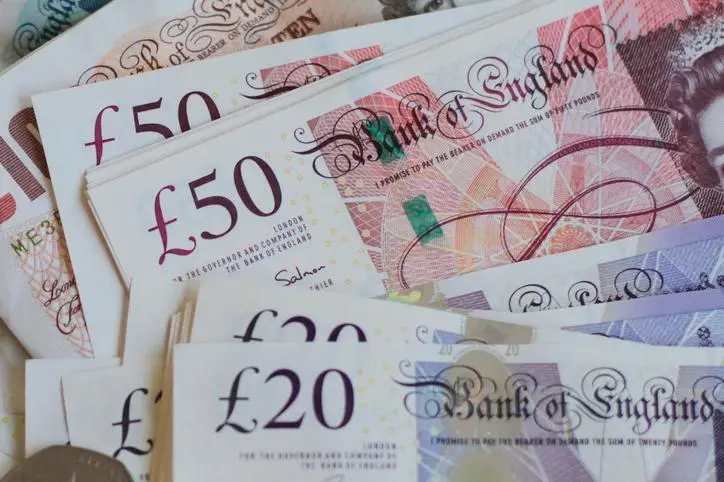PHOTO
LONDON - Sterling is a collateral victim of the race to be Britain’s next prime minister. The frontrunner, Boris Johnson, has promised Britain will be out of the European Union by the end of October, “do or die”. What’s more, he and his rival, Jeremy Hunt, are vying with each other to take a harder stance on Brexit. Whatever good that does either man’s chances, it’s inflicting considerable damage on the pound. More pain probably lies ahead.
Sterling on Tuesday fell to 27-month lows around $1.24 and hit new six-month troughs against the euro. That came a day after both candidates said that even significant concession from the European Union on the Irish border would be insufficient. Options prices show investors are bracing for further declines: their preference for six-month options to sell rather than buy pounds for dollars is growing. Meanwhile sterling/dollar six-month implied volatility, a gauge of how much the exchange-rate is expected to gyrate, is rising.
The risk that Britain could exit the EU in a disorderly fashion has been around for some time but investors have so far assigned a fairly low probability to it. For example, a Bank of America Merrill Lynch survey of fund managers conducted between July 5 and July 10 found only a fifth expected Britain to leave the EU on or before the current end-October deadline. And 60% of respondents put the probability of a no-deal Brexit at 40% or lower.
The shifts in the currency and options markets show this outcome suddenly looks a little less improbable. That may be taking a toll on sterling, but derivatives prices and positioning in the futures market are nowhere near the extremes they have reached in the past two or three years. There’s therefore scope for further sterling losses if Johnson and Hunt keep talking tough.
That’s because Investors will anticipate the havoc a chaotic Brexit could inflict on the economy, and the subsequent policy easing by Bank of England Governor Mark Carney. True, his U.S. and euro zone peers are also talking about easing policy these days. It would be worse for sterling if that were not the case. But that will offer limited protection against political bruising.
CONTEXT NEWS
- Sterling on July 16 fell to a 27-month low of $1.2406 and hit new six-month lows of 90.42 pence per euro. It was trading at $1.2420 and 90.27 pence per euro at 1240 GMT.
- Its latest losses came a day after the two candidates to be Britain’s next prime minister – Boris Johnson and Jeremy Hunt – jockeyed with each other to take a harder Brexit stance.
- Johnson and Hunt on July 15 set a high bar for success in Brexit negotiations, saying that even a significant concession from the European Union on the Irish border would be insufficient.
- That stance means that, to avoid a disorderly Brexit, the next British prime minister will have to persuade the EU to restart talks that other members of the bloc have said cannot be re-opened and to drop one of their most steadfast demands, an insurance policy designed to prevent the return of a hard border between Ireland and the British province, Northern Ireland.
(Editing by Neil Unmack and Bob Cervi. Graphic by Vincent Flasseur.)
© Reuters News 2019





















